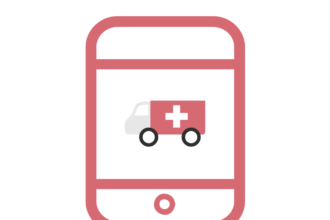Here’s one more step closer to having even less privacy upon more industries using facial recognition. I read through this article and advertisers are using it to recognize age ,etc.
Here’s one more step closer to having even less privacy upon more industries using facial recognition. I read through this article and advertisers are using it to recognize age ,etc. to present ads that would appeal to age groups based on their face with the software doing the work and cooking up the ads. It could be ok but in the one example let’s say I wanted to look at shoes and I am in my 50s and it shows me shoes that my age group would normally buy or wear. What if I wanted shoes that someone in their 30s would wear? Am I SOL here? On the other hand if I wanted shoes that someone my age would wear then maybe not so bad.
Keep in mind the software stores and build profile too depending on how it is designed and installed so your profile gets added and again when we look at what’s on the web, i.e. Facebook you could be matched up. So your location looking at ads would go to a data base somewhere. Are we all going to have to wear masks in the future for privacy? I’m sure the next level will be able to penetrate any old mask we could drum up if you look at where technology is today.
Back on the healthcare side, the one attorney quoted here makes some very good points in referencing use at or around an abortion clinic. Now we know what happens there and the loose cannons out there running around that have killed doctors so we don’t need to give them any more fuel in that area for sure. He also references a cancer treatment center and yes the last thing a patient would want is having yourself identified and gee, if tied to Facebook, well there you go if you are still opted in to their software.
Do you want this in the hospital too? RFIDs can take care of finding patients pretty well in that area. The article talks about Kraft Foods in a supermarket being used so it can figure out the type of ad that needs to jump out at you in order to get you to buy. Well, well…I can see what’s coming here with competition with food products and someone tying in the healthy foods and lawsuits to follow for unfair competition arising. I also wonder how long before Facebook would want to tie up here too and connect you online, could happen as they can already pick you out of a picture posted on Facebook that someone else has posted if you are in it.
Prevent Facebook From Suggesting Your Friends Tag You in Their Photos Using Facial Recognition
The main point made here is do you really need everything as such recorded? I agree with that and how people use it is a big question as there are always those  who will use the information in a risk management arena. Can you imagine in a clinic with it connecting to Facebook, let’s say if you were still opted in and you wanted to have a confidential visit without it going to an insurance company or are you going to get targeted ads for diabetes or high cholesterol based on your face? All the educational information is good but let’s face it, we will get very tired in a hurry of all the “force fed” stuff that is good for us and attraction is always so much better.
who will use the information in a risk management arena. Can you imagine in a clinic with it connecting to Facebook, let’s say if you were still opted in and you wanted to have a confidential visit without it going to an insurance company or are you going to get targeted ads for diabetes or high cholesterol based on your face? All the educational information is good but let’s face it, we will get very tired in a hurry of all the “force fed” stuff that is good for us and attraction is always so much better.
I don’t have a problem with law enforcement using it to track down criminals and make the world a safer place by all means but if it shows up on every street corner like we have cameras now, who’s going to be the keeper of the data and who’s going to analyze and how many mistakes are they going to make as well. Remember too this will create more data for sale and someone is going to want to buy it for analytical purposes. Again, I have said before those folks need to have a healthy reseller’s license fee and pay taxes on what they sell and disclose to who.
Privacy Wanted–So Let’s Require Those Who Sell Web Data to Register and Tax the Transactions and Publicly Disclose Who They Sell To With a Federal Registry
By requiring a license and taxes it gives those who enforce the law a leg to stand on and might slow some of this down a bit as we obviously can’t stop it, but one small infraction and lose the license or go to jail maybe?
Google used their heads with facial recognition and decided there could be more potential for harm than good and quietly put it away, a good move on their part.
On the other side of the coin we have insanity at HHS with a contest for a Facebook app for disasters (not recommended for riots). What’s up with this contest with paying 50k for an app to help people in case of a disaster? Do they want everyone to give up what privacy they have left? Sure plug in to Facebook facial recognition and gather and sell more data? Not for me as my cell phone could give a signal to find me in case of an emergency.
HHS Seems To Be Confused on Social Networks–Facebook for Disaster Support Contest, Give Me a Break Use Twitter Like Everyone Else Does
Time will tell if people can use their heads about using facial recognition but I fear as long as the lure of selling data and making money is so alive and well, people will do unscrupulous things with the technology, so removing the profit and cutting down profile marketing today is one thing that should definitely be looked at. Crap we already have FICO credit ratings fleecing the public with algorithms they said that can take your credit score and determine whether or not as a patient if you will take your prescriptions, so right there with risk assessment and the belief that their analytics can do this is one big huge mis match and use of data analytics. They have over sold this in order to make money and create data base profile to sell about you, don’t be fooled. This is think is part of what Google may have considered when they opted out of this.
So watch out for the over selling of analytics by all means and will the data addicted profitmaking analytics folks abuse this with combining your facial profile with credit scores next? If they can make a buck they probably will try to figure a way to sell it. So keep your ears open and if you here that facial recognition combined with your credit score is going to used to do a risk assessment, you were warned here first as the fleecing of US citizens with mismatched data is big concern for all of us. I’m not particularly fond of all of this but I am finding out when going back and reading my archives from the last 2-3 years, sadly the abuse potential that I predicted is now here and I don’t like it either and sometimes lose sleep seeing the potential before it happens.
Data Analytics make us smart and do so many good things but again when it comes out to running a math formula and quoting stats to someone who can’t tell the difference between reality and the numbers (and this happens in other places too all the time) you may get fleeced.
Risk Assessments should be up for audits and credibility verifications by all means and the sooner the better. BD
FICO Analytics Press Release Marketing Credit Scoring Algorithms to Predict Medication Adherence–Update (Opinion)
Picture this: You stop in front of a digital advertising display at a mall and suddenly an ad pops up touting makeup, followed by one for shoes and then one for butter pecan ice cream.
It seems to know you’re a woman in your late 20s and, in fact, it does. When you looked at the display, it scanned your facial features and tailored its messages to you.
Once the stuff of science fiction and high-tech crime fighting, facial recognition technology has become one of the newest tools in marketing, even though privacy concerns abound.The commercial applications of facial recognition are in contrast to those being used by law enforcement to identify specific individuals. Companies, at least at this point, mostly just want to pinpoint a demographic based on age and gender to tailor their ads.
The technology works by digitally measuring the distance between the eyes, the width of the nose, the length of a jawline and other data points. Law enforcement agencies that use facial recognition — as was done during the recent London riots — compare the measurements against photos in databases.
But for most marketing uses, the measurements are compared to standardized codes that represent features typical of males and females in various age brackets.
Privacy advocates worry the technology is one more way for companies to quietly gather data about people without their permission or even knowledge. In June, Facebook Inc. rolled out a facial recognition feature worldwide that could pinpoint individuals. It was used to automatically identify friends when you uploaded photos of them onto the social network.
When members realized this was happening, many loudly objected, calling it creepy and invasive. The feature still exists, but the company apologized and made it more clear how users can opt out.
David C. Thompson, an attorney at Munger, Tolles & Olson who specializes in privacy law, said the use of facial recognition can catch and expose people during very sensitive moments of their lives, such as going to an abortion clinic or a cancer treatment center.
“The problem is that there are things we do that we don’t need a permanent record of,” Thompson said. “I don’t need other people to know where I’ve been and what I’m doing.”






